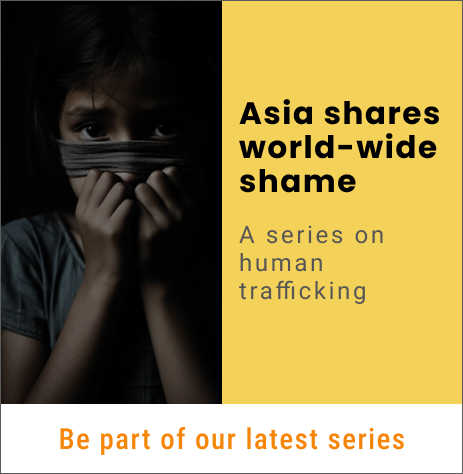A prominent US-based economist has accused China of prohibiting him from discussing his concerns about Hong Kong in the recently concluded China Development Forum in Beijing, according to a report.
Stephen Samuel Roach, a senior fellow at Yale University’s Jackson Institute for Global Affairs, said that the forum organizers only wanted “views constructive to China,” Radio Free Asia (RFA) reported on April 2.
“I’ve written a few articles that raised serious concerns about the future of Hong Kong and those touch on sensitivities in Beijing,” Roach said. “Largely for that reason, they asked me not to speak about that at the China Development Forum.”

Roach who is also the ex-chairman of Morgan Stanley Asia was invited to the forum held in Beijing from March 24-25.
He has been attending the forum for the last 24 years since its inception in 2000 by the then-Chinese premier Wen Jiabao, RFA reported.
China’s reformist premier Zhu Rongji conceived the forum as a platform for Chinese leaders to debate and discuss policies and issues in the presence and participation of foreign experts.
This year’s China Development Forum was attended by more than 200 delegates, including eight representatives from Hong Kong, among others.
Roach alleged that the Hong Kong academic and business representatives at the forum were not truthfully reporting Hong Kong’s situation to Beijing.
As an example, Roach cited his discussion on the sidelines of the forum with Laura Cha, chair of the Hong Kong Stock Exchange, on China’s financial market policies.
Roach pointed out that Cha agreed to only two of the three points that he raised.
Among his points, Roach had commented that Hong Kong and China’s economies were interdependent and had raised concerns about the negative impact of the US-China political conflict on Hong Kong trade, among others.
Roach had also raised his worries about Hong Kong’s autonomy, especially after the recent enactment of the second national security law, commonly known as Article 23.
“So, I said all three of those will spell trouble for Hong Kong in the years ahead, and Laura Cha agreed with two of my three points – the Chinese economy, the adverse impact of the US-China conflict,” Roach said.
“But she did not agree with my point on Hong Kong’s political autonomy being compromised by either Beijing or its own,” Roach lamented, adding that his argument stemmed from an economic consideration and not politics, which almost no one has disputed.
Roach claimed that his commentary titled “It pains me to say Hong Kong is over,” published in the Financial Times in February this year had drawn the ire of Beijing officials.
He had attributed the demise of Hong Kong to its domestic politics, China’s structural problems, and the worsening US-China tensions, RFA reported.
Roach pointed out that the forum format had changed this year with the closed-door discussion with foreign chief executives and the Chinese premier getting canceled.
He recalled the Zhu era forums during which issues could be discussed freely and openly, recalling a session at the 2001 forum in which Zhu sat in and participants openly debated on issues.
“I urge current Chinese and Hong Kong leaders to do likewise. Debate on issues and not based on personal political agendas,” Roach said.
Roach said he would continue to write and speak, to tell the truth, as “debate is more important than personal pressure,” when asked if he was worried about returning to Hong Kong after Article 23 was passed.
“If constructive criticism causes uncomfortable reactions from politicians and businesspeople, they need to look at themselves,” Roach emphasized.
Roach pointed out that foreign investors are seriously assessing the risks of doing business in Hong Kong, amid the uncertainty of how Article 23 will be enforced and interpreted, which has cast a shadow on the city’s autonomy under the one county, two systems principle.
Compounded by the US-China spat, “capital outflows may intensify,” Roach warned.
Credit: Source link



